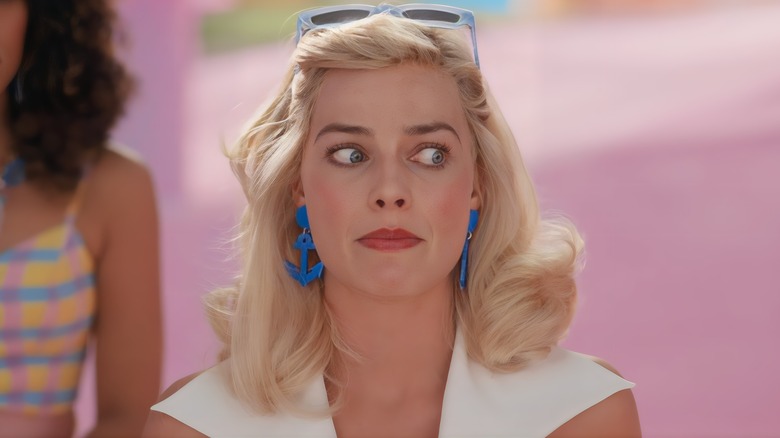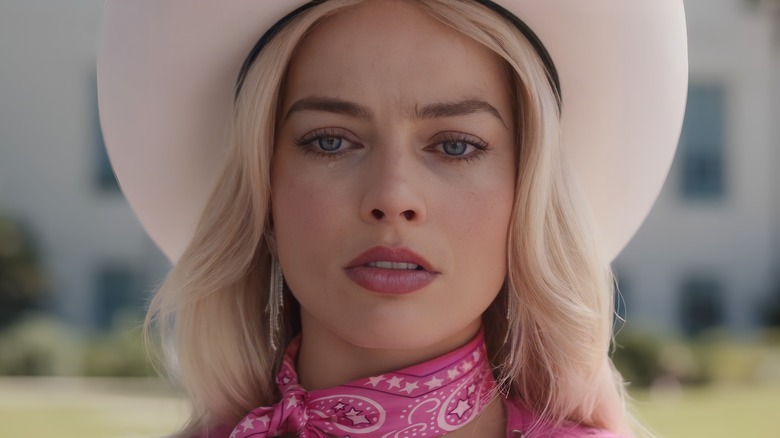Why Barbie's Fear Of Death Is So Vital To The Movie - And Its Audience
Contains spoilers for "Barbie"
Before Greta Gerwig's "Barbie" movie hit theaters, one of its biggest moments was already online, thanks to the film's spectacularly stylized trailer. As Barbie (Margot Robbie) hosts an elaborate dance party for all her Barbie and Ken friends at her Barbie Dream House, she puts a stop to everything by loudly asking, "Do you guys ever think about dying?"
The music grinds to a halt and everyone stares at her, horrified. Barbie brushes it off, fixes the situation at the moment, and everything continues as planned, but when she wakes up the next morning, everything's all wrong. Her water-free shower? Freezing. Her pretend milk? Rancid. Her perfectly arched feet? Flat. Her beautiful, unblemished skin? There's some cellulite, and as Weird Barbie (Kate McKinnon) observes, there's more where that came from.
It all comes back to Barbie's intrusive thoughts about dying, which kick off the movie's entire narrative. Barbie's existential crisis just grows and grows until, on Weird Barbie's advice, she finds her way to the real world, only to realize that people really don't like her and, unlike in Barbie Land, men have all the power in this world. Barbie's idyllic existence is gone, and even when all is well in Barbie Land at the end of the movie, she still can't shake the fact that something about her has changed forever.
Barbie's thoughts of death reflect the loss of innocence — and how hard it is to be a human
Barbie, while exploring the real world, eventually traces her sudden sadness back to Gloria (America Ferrera), a mother who's been absentmindedly playing with her daughter Sasha's (Ariana Greenblatt) discarded Barbies and imbuing them with her own deep existential misery. The two work together to bring Barbie Land back to its former glory after the Kens conduct a little experiment with the concept of patriarchy, but Barbie's still unsatisfied, and she says as much to her creator, Ruth Handler (Rhea Perlman). The two leave Barbie Land together, and Barbie takes an enormous leap: she becomes a human.
Barbie's fellow Barbies don't join her, because they haven't yet grappled with their own mortality. When Barbie does, her innocence is left in the rearview mirror, just as girls like Sasha outgrow their Barbie dolls and make their journey into womanhood and all its complications. "Barbie" even drives this point home with its perfect stinger of a final line, wherein Barbie, now Barbara Handler, visits her gynecologist for the first time.
"Barbie" is a candy-coated pink party of a movie on its surface. Underneath that, it reminds us all that life is hard, womanhood is complex, and it's not easy to be a human being. Barbie knows all that by the end of the movie... and so do we.
"Barbie" is in theaters now.

